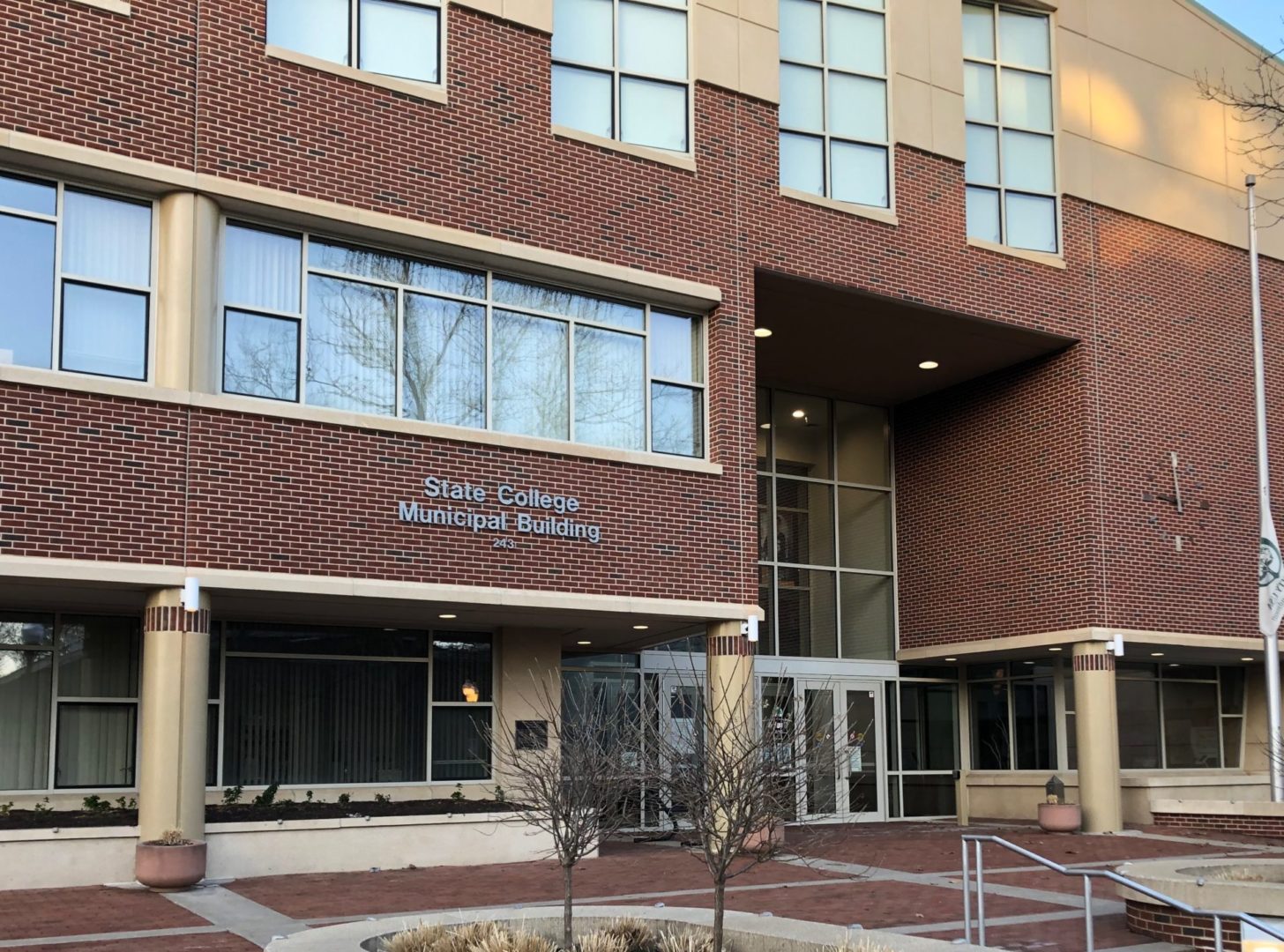A proposed Responsible Contractor Ordinance for public construction projects in State College will wait until 2024 for consideration by a borough council that will have a majority of new members.
Council informally agreed during a work session on Monday night to postpone until next year further deliberations on the measure, which would establish new requirements for contractors to be eligible for borough-owned projects of $250,000 or more.
State law and the borough purchasing code require contracts to be awarded to the lowest responsible bidder but provide no guidance on how “responsible” should be defined. The RCO, which was first suggested to Mayor Ezra Nanes and council President Jesse Barlow by the Seven Mountains Labor Council, aims to ensure worker safety and timely, cost-effective work on public projects.
It’s similar to the RCO adopted by Centre County Government in June, but absent the most contentious provisions that stirred controversy before the measure passed by a 2-1 vote of the Board of Commissioners.
Most notably, the county ordinance requires that 70% of the craft labor workforce on projects over $250,000 be journeypersons, workers who have completed a state- or federally-approved apprenticeship training or those currently enrolled in such an apprenticeship program. Opponents of the county RCO contended that would favor union shops and disqualify from bidding otherwise qualified non-union contractors who have years of experience and training.
That condition does not appear in the borough’s draft RCO because, according to Monday night’s agenda, State College, unlike the county, is a home rule municipality. Borough solicitor Terry Williams advised that the state legislation enabling home rule prohibits municipalities from “determining duties, responsibilities or requirements to be placed upon business, occupations and employers,” and including journeyman and apprenticeship requirements could leave the ordinance vulnerable to a challenge.
“It dictated certain specific requirements for apprenticeship programs and things of that nature that after reviewing and consulting with legal counsel that those would be in violation of the authority of the home rule statute,” Fountaine said at council’s Dec. 4 meeting, when the ordinance was first introduced.
The proposed State College RCO would require all craft labor working on a borough project to have completed the Occupational Safety and Health Administration’s 10-hour safety training course for safety and at least one person with OSHA 30 training.
Among other proposed requirements contractors must certify that they will pay craft workers prevailing wage by the appropriate job classification. That extends to subcontractors and off-site custom fabrication for non-standard goods and materials for a project, the latter a requirement that received some pushback at the county level.
It also prohibits bids from being awarded to contractors who in the past 10 years have been convicted of a crime related to the contracting business or in the past three years had a contracting license or certificate revoked, been debarred or suspended by a government agency, defaulted on any project or been found in violation of any law applicable to their contracting businesses.
Council member Peter Marshall, who will not be on council in 2024, took exception to provisions that would disqualify contractors who have atoned for past violations and have a history of quality work, saying it “penalizes the municipality as much as anyone.”
“If they had done something wrong, and if you read this it could be minor, and had to step up and make it right, they would be disqualified and we would be penalized because we would go to the second bidder, which would be more expensive, maybe not as good,” Marshall said on Monday.
Some of the provisions are overly broad or vague, he said, suggesting that a questionnaire that could provide nuance and explanations would be more useful than the proposed self-certifications of listed requirements.
“It would give the council more basis for making a decision,” Marshall said. “I would not put all those limitations and say anyone of these violations disqualifies you. I think that staff should have more flexibility than that… I think some thought should be given to changing this so that it does give council, the staff more options to make choices rather than just the low bidder, give them more options in making decisions on who is qualified to do the job.”
Barlow, meanwhile, said he believes the ordinance should do more, citing six worker deaths at construction sites in Centre County since 2018.
“I personally think it doesn’t go far enough and doesn’t address the issues that caused the deaths of six workers in this area in the last few years,” Barlow said.
He added that the points raised by Marshall demonstrated that council was not ready to take the RCO to a vote.
If and when it does come up for consideration in 2024, the seven-member council will have four new members who were elected in November.
At least one of them has already voiced support for the RCO. Evan Myers, who will be returning to council after serving two previous terms, said at the Dec. 4 meeting that he is in favor of the RCO.



